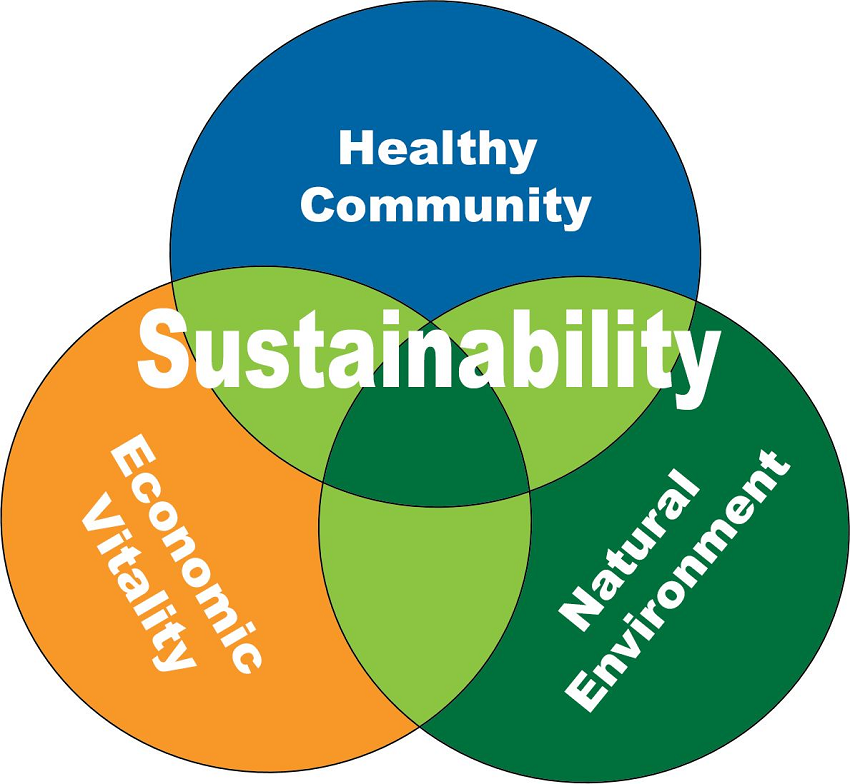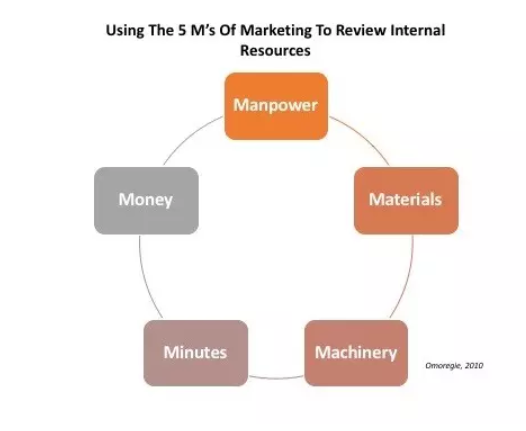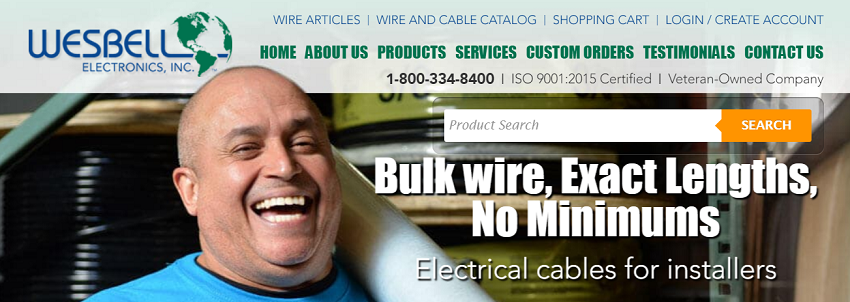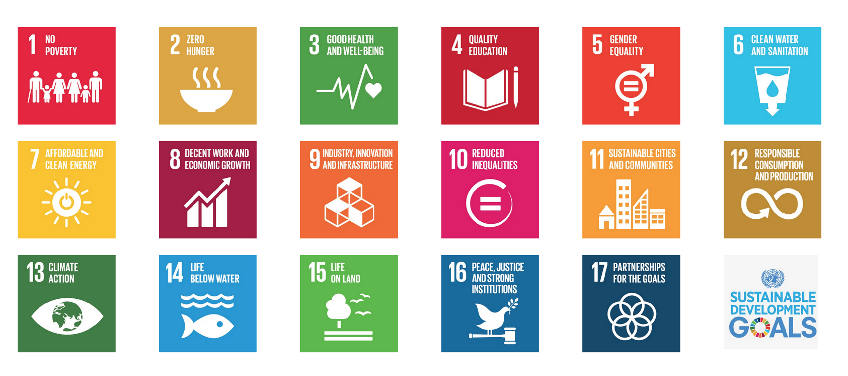 |
Chris Bell | 'The man on top of the mountain didn't fall there.' |
| - Vince Lombardi |
 |
Chris Bell | 'The man on top of the mountain didn't fall there.' |
| - Vince Lombardi |
SNHU - MBA-665 Government Impact on Business
Written by: Chris Bell - July, 2018
Due to governmental rules and regulations such as RoHS, REACH, MSHA, OSHA, UL and CSA, WesBell’s environment is presented with opportunities to become a certified vendor that conforms and complies with government action, soon after it’s required, or even just encouraged. As WesBell’s customers see that they take certifications and approvals seriously, they trust that WesBell will act the same way in the future as well. According to www.entrepreneurship.org, “Entrepreneurs need to know what laws and regulations apply to their particular business. Once engaged in business, they must be constantly aware of what new or amended laws and regulations apply.” Following new policies isn’t the opportunity; the opportunity is building trust with customers and employees that interact daily. When customers know that WesBell is adhering to the OSHA standard, they understand that WesBell cares about their personal safety, and might, in turn, trust that WesBell cares about them too. www.entrepreneurship.org goes on to say, “The Occupational Safety and Health Administration (OSHA) has very specific requirements concerning health and safety which apply to many businesses’ employees and customers.”

Conversely, WesBell is threatened by growing over 50 employees, whereby becoming a large corporation that is held to governmental policies relating to full health care coverage, tax law changes and supplementation of additional financial information within their tax documents. Even though WesBell has considered this a threat to their finances, they started offering full health care coverage now, with only 30 employees. Their thought process starts with getting accustomed to the overall labor rate increase and scaling the company to 50 employees with that in mind, rather than adapting to it then. Furthermore, the founder and CEO, finds that avoiding government policies will create more problems, such as limiting the company to 49 employees and starting to operate under a second entity to avoid a new policy. Paying taxes differently and supplying more information to the government isn’t exactly an opportunity, but only a small threat compared to health care changes.
WesBell sees a strong correlation between adhering to government rules and regulations to the sustainability of its organization. This became clear to WesBell after being in business for about 10 years when RoHS compliance became popular. At the time WesBell was purchasing wire that needed to be RoHS complaint by the manufacturer and WesBell was cutting hook up wire, stripping the insulation and dipping the strands into lead solder. WesBell shrugged it off and ignored the idea that was mentioned to them a few times. However, a year later, one of WesBell’s biggest customers threatened their business if WesBell didn’t get approved. What RoHS represents is less important than why WesBell should comply. Once WesBell saw that they should comply to RoHS to sustain customers, big or small, they realized that they should adhere to all new government policies going forward. The CEO determined that other companies must be switching vendors over certifications as well. The CEO turned the threat of losing a customer into the opportunity of gaining new customers.

The CEO has started implementing internal policies for full health care coverage before reaching the mandatory level of employees because he sees it as a measurable opportunity for long term sustainability. Health care has become a political topic for debate and it’s far better to be on the positive end of that equation. Firstly, the employees will be happy to receive health care within a small company and stay with WesBell longer. Secondly, there are currently 30 employees that go home to families on nights and weekends, talk to friends regularly and attend various events, parties and gatherings throughout the year, all of which are chances to answer questions about their employment at WesBell, positively or negatively, and mention that they are treated well, work in a safe environment and are employed with full benefits including health care. The cost of happy employees is hard to measure, and so aren’t their comments outside the workplace.
With only 30 employees, WesBell hardly has a department dedicated to government approvals and human resources. However, long after becoming UL, CSA and RoHS certified, WesBell hired someone to implement and certify them as ISO 9001:2008 compliant. The process took more than a year and the same employee maintains the certification and managers the annual audits. There’s more involved than filing paperwork to become ISO 9001 certified that the company and employees need to practice daily. For example, WesBell can’t just state that they collect nonconforming data to implement corrective actions, there needs to be proof of the data and the collection process. Furthermore, they can’t just state that they complete employee evaluations annually, collect feedback and implement the employees concerns in the following year; it needs to be proven during the annual audit which is completed by a third party.

Since then, this person has also certified the company to OSHA, MSHA and REACH, along with updating the ISO certificate to ISO 9001:2015 and implementing a safety committee that meets monthly to search the facility for opportunities for improvement. He is currently implementing ISO 13485 which is a medical standardization due to a large customer of WesBell’s that’s involved in the medical field. Again, since WesBell sees certifications as opportunities to sustain and solicit customers, this employee, or department, will continue searching for new certifications and bringing WesBell up to date, one by one, even if it’s not required for WesBell to be approved. According to the European Chemicals Agency (ECHA) (June, 2007), “If you are a company established outside the EU, you are not bound by the obligations of REACH, even if you export their products into the customs territory of the European Union.” WesBell isn’t interested in the bare minimum requirements, but instead interested in responding to customer needs, avoiding use of harmful chemicals and attracting new customers as a vendor that cares.
Communication travels quick in a small company, but it’s also presented to the employees collectively to be clear and concise about the objectives going forward. It was quite simple to let everyone know about the new health insurance plan since it was positive news across the board. WesBell also supported the employees that were already covered on their spouse’s plan. For example, WesBell offered 50% of the health insurance value as a salary increase to a husband that’s already covered within the benefits of their wife’s health insurance plan. Presenting the news in a positive manner is important for the leaders at the company compared to presenting it in a manner that reflects how the government is forcing them to comply to a new standard, and that they need to each work harder to cover the additional cost.
Communication is much more difficult when training the team to adhere to new standards such as ISO 9001 and ISO 13485 because it changes their normal routine, and it’s not enough encouragement to tell them that WesBell can solicit more business with the certification because most of them are laborers and it sounds like more work with a more stressful environment. On the contrary though, it means more structure, more opportunities for advancement and higher wages. Each of the employees will have to comply with the new standard, but communicating it positively, offering advancement opportunities and asking for help will be a better approach than demands. External communication is important through marketing materials and through the help of each sales person by contacting their customers personally. Telling customers about the letters and numbers of ISO 13485 is boring but stating it as per the ISO Focus magazine, The Magazine of the International Organization for Standardization, Industrial automation (2007), “International Standards in support of industrial automation will open new options to increase the efficiency of the industry and facilitate the development of new business alliances. Small and medium enterprises (SMEs) for instance, will be able to interact with a multiplicity of global customers while limiting their expenses.” Instead of considering it a threat that their customer asked them to become certified to ISO 13485, WesBell sees it as an opportunity to be one of the few that can support the needs of this customer, and an opportunity to find new customers with the same mindset. Spreading the word through internal and external communication will be vital for WesBell to be a company that embraces this change and appears to be prepared for future changes as well.
Additional approvals to abide by, tax laws to implement and standardization to comply with started out by threatening WesBell’s company image. They feared the implications if they didn’t comply and they were scared to lose customers because of it. However, it wasn’t like the cost of buying new chairs and desks. Instead, WesBell had the chance to implement processes and procedures that keep their current customers happy and helped with creating a plan of action to attract new customers within their marketing material. WesBell promoted the approvals and health care benefits in a positive manner rather than negative, to attract new customers and new employees that need health care. It didn’t automatically negatively impact WesBell because there was a time frame to get approved before, either the government makes it mandatory or customers start seeking vendors that have the approval. According to Steiner and Steiner (2011, p. 198-199), WesBell is operating under the theory of moral unity rather than the theory of amorality because they aren’t selfishly decided how to avoid the health care and tax laws that are coming soon in the future, but instead figuring out how to adapt to them and treat their employees ethically and morally. That includes small businesses too, like My Best Life Apparel, as they also need to adhere to regulation, morals, ethics and standardization.

There were both positive and negative impacts on WesBell because there was no guarantee that they would get new business by investing money into new approvals and certifications, nor was there a guarantee that employees with health care coverage would work more efficiently than those without. However, WesBell has been ISO 9001 certified for about 7 years, they kept the biggest customer that threated to buy their copper wire elsewhere and their sales people are able to tell their customers that WesBell is ISO 9001 certified. It’s a way of promoting quality products and service due to quarterly and annual audits of their processes. The latest standard also promotes risk management and mitigation which sits well in the stomachs of new customers that haven’t built in a layer of trust yet. Negatively, it’s been a stressful environment of finding “opportunities” that are technically errors and nonconformities that happened due to one of the employees, somewhere in the company. Nonconformities found during the inspection process of a customer can devalue the trust layer and deter them from doing more business with them in the future. Perhaps, it could create bad reviews online and bad word-of-mouth marketing.
Since growth requires ongoing responses to new government actions like those affecting WesBell, the best course of action is to create an ongoing plan of action to continuously respond to new approvals. For example, when RoHS became known for harmful toxins it was imperative for manufacturers to design and manufacture a copper wire without lead, and other materials, and it was imperative for WesBell to buy from those manufacturers, and to avoid using lead-based solder products. The first manufacturer to comply, along with the first distributor to comply, probably got an influx of sales opportunities from end users that demanded such products. However, it wasn’t until 5 years after the government demanded it that WesBell finally complied, and there are still millions of companies that probably don’t understand of care to get compliant in these areas.
The short-term response from WesBell was to become RoHS compliant. The short-term response then became ISO 9001 compliance due to a complaint, or down right ultimatum, from a customer. Now, however, WesBell has a long-term response and plan of action to dedicate a compliance employee (department) to work on each new approval as it comes out. Now that WesBell is certified for RoHS, REACH, UL, CSA, OSHA, MSHA and ISO 9001:2015, they’re working on an ISO 13485 medical certification. Then they subsequently use the approval as the next year’s marketing literature to attract new customers. This is a proactive response rather than a reactive response to complaining customers. It’s also a risk-based thought process that promotes continuous improvement. Finally, our customers see each new approval as a company that’s moving forward rapidly, and one that understands the severity of certifications, government rules and regulations, and quality.
The operational impact on WesBell has been positive for everyone involved. Once certified for OSHA, for example, WesBell had a new mindset into the safety of the workplace, and for the employees. With heavy copper wire spools, wire processing equipment and a traveling fork truck in the warehouse, WesBell has plenty of safety opportunities to consider, and they are, regularly. Becoming RoHS complaint forced WesBell to stop dipping copper wires into lead-based solder pots, which create a puff of smoke 12 inches from the assembler’s face, and possibly creating an unsafe environment. They also installed ventilation systems that constantly pull air directly above the solder pots because, even though the solder is lead free, it could still have unknown harmful chemicals. WesBell continues to use continuous improvement initiatives and risk-based thinking to create a safe operational environment for the employees.

On the surface, the costs of becoming compliant have hurt WesBell’s finances, but digging deeper, there are priceless outcomes. Inc.com describes opportunity costs as, “It is the opposite of the benefit that would have been gained had an action, not taken, been taken—the missed opportunity.” Health coverage has a bigger impact on finances, and WesBell is still experimenting that opportunity as of 2018 to determine if the employees will stay longer, work harder and, in turn, use their long-term knowledge of WesBell’s operations to help improve the company and take it to the next level. There are direct benefits, internally and externally, for ISO 9001:2015 certified companies because the operation is efficient. If the processes aren’t improving then the certification will be revoked because it’s not about being a perfect company, it’s about always improving no matter where you started. Like human traits, companies will always make mistakes, and customers understand that, but the actions in which companies take to improve is what truly matters, whether the company is producing $1 million in revenue or $10 billion.
WesBell is sending a strong ethical message from the top down and from the inside out by offering health care before the necessary requirement and by answer customer demands quickly and promptly. They have developed an atmosphere that allows the sales managers to answer their customers without approval, “Yes, I believe we can start working at becoming ISO 13485 certified. Does that mean we’ll be approved for a new line of products with your company?” Furthermore, employees will feel comfortable bring up concerns that they feel are unsafe, hazardous or worthy of improvement, without the fear that management will say that it costs too much or that it’s not on the priority list. Each of the approvals, the health care benefits and the safety of the operations aren’t happening behind closed doors. WesBell brings teams together to develop a plan of action to implement new standards and processes. This culture is seen inside with the employees and outside with the customers and vendors, so that all of WesBell’s stakeholders are excited to work with a company that promotes a safe, legal, ethical, moral and risk-based approach to growth.
WesBell hasn’t reached the level of being approached by lobbyists just yet, however, they have been approached by state representatives that performed surprise OSHA and MSHA audits, forcing WesBell to respond. More than 20 years ago, when this happened, WesBell was hardly acting proactively or thinking about safety and more than, “Be careful on that fork lift.” Or “Don’t cut your finger off in that wire processing equipment.” It wasn’t even a turning point for WesBell at that point, not until much later. They complied as they were asked and awaited the next audit instead of proactively preparing for the next audit. Once WesBell reaches 50 employees the government will surely notice, and when they reach into the paperwork they’ll notice that WesBell was more than prepared this time. A company that already offers health care to their employees, already operates and pays taxes as a corporate company, and one that has various approvals and certifications, far beyond the required amount.
WesBell’s customers began to demand RoHS complaint material, so WesBell had to demand the same from their vendors, or else, risk losing their business. Even though WesBell isn’t responsible for the design of products from their vendors, they are responsible for sending their customers compliant products. Therefore, WesBell must have a list of certified vendors that meet the requirements they demand, so that they can be honest with the statements they make to their customers. Some items are more difficult to approve than others. For example, suppose a vendor puts lead solder into a box that says “lead free” because it’s cheaper. WesBell needs to be sure that they are receiving and selling lead-free, RoHS compliant, materials to their customers, first, because they demand it, and second, because WesBell states it in marketing literature. Most wire and cable products are 3rd party approved which adds a layer of authenticity for WesBell to minimize incoming quality checks. If WesBell wants to claim compliancy to standards, they must do so by choosing the right vendors to support their customers, no matter the cost.
References:ECHA (June, 2007). Understanding REACH. Retrieved from:https://echa.europa.eu/regulations/reach/understanding-reach Entrepreneurship.org (November, 2005). Complying with Government Regulations. Retrieved from: https://www.entrepreneurship.org/articles/2005/11/complying-with-government-regulations Inc.com (n.d.). Opportunity Costs. Retrieved from: https://www.inc.com/encyclopedia/opportunity-cost.html ISO.org (2007). ISO Focus. Industrial automation. Retrieved from: https://www.iso.org/files/live/sites/isoorg/files/news/magazine/ISO%20Focus%20(2004-2009)/2007/ISO%20Focus,%20December%202007.pdf Steiner, J., & Steiner, G. (2011). Business, Government, and Society: A Managerial Perspective, 13th Edition. McGraw-Hill Learning Solutions, 06/2011. |